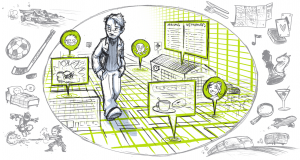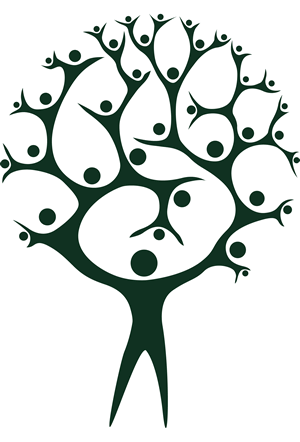’Tis the human touch in this world that counts,
The touch of your hand and mine,
Which means far more to the fainting heart
Than shelter and bread and wine.
For shelter is gone when the night is o’er,
And bread lasts only a day.
~ Spencer Michael
“Aaarrrghh! I swear I’m divorcing this mobile network as soon as I get back from my trip!” shouted Rose angrily. This wasthe 4th time today she was trying to reach a living being on her customer service call. The automated voice on the phone says “Your call is important to us.” “We have a huge volume of incoming calls today and one of our customer agents will be with you shortly” but the shortly never happened, Rose was annoyed! All she needed was to get a simple International calling package activated as part of her phone plan for the next three weeks as she was travelling. The first thing she did was Visiting her mobile store but they informed her that they were a franchisee and for any changes in phone plans, she will need to contact the customer care. Hence, this situation. Her colleagues around her at the lunch table sighed in acknowledgement of how painful dealing with technology can sometimes be.
‘Human Moment’ – a term coined by Professor Edward M. Hallowell refers to the psychological encounter that can happen only when two people share the same physical space. The human moment is a quality of interaction.
In my recent interview with Andrew Zimakas, CMO of Tangerine (ING Canada subsidiary that was purchased by Scotiabank was renamed as Tangerine and is being grown independently of its existing Scotiabank banking service) expressed that one of the top concerns for his team is to ensure the human touch in their business model of an e-banking service.
A few industries where human-to-technology interaction is overtaking the time spent on human-to-human interaction are Medical field, Banking sector and Retail shopping. More and more services are shifting towards less and less human involvement from the organisation’s side which raises the question if all of that translates into a positive experience for the consumers or not. Various reasons are attributed to this move towards technology by the organizations such as:
1. Standardization of their customer services
2. Reduced overhead costs of training, reviewing and salary costs of employees
3. Advances in affordable technology
4. Maintenance costs and so on
What about the trade-off? Are the consumers equally happy talking to automated voices now instead of a real human interaction experience? The responses vary by demographics. Services like Medeo where you can take an online appointment with a doctor and get medical examined via a webcam push us to introspect how much is not much. According to a researchstudy, people in the age range of 40 and above like to speak to or be guided by a human during their service experience. A study by the Center for Information & Study on Clinical Research Participation (CISCRP) found that although 52% of patients surveyed prefer to hear about trials from their primary care physicians, only 20% do. Contrastingly, people in the younger age range prefer that they don’t have to deal with a real human being and like the anonymity and ease that comes with dealing with technology.
The implications for the market are the following:
1. Data insights v/s Observational analysis: It is a paradoxical situation that we have much more data about the consumers without really interacting with them. Is that resulting in better insights or less? Is increased data blinding us to cues we could have picked up only by observational methods?
2. Reduced number of avenues for touch points with business: The businesses now do not know their customers to the human extent that was earlier possible as their number of touch points have reduced with the consumers. There is no force deployed on ground
3. Increased business for Market Research companies? The companies will have to/ are having to rely on Market research companies to understand their consumer for them.
In conclusion, as we modernize and digitize we need to look at ways to still make the consumer feel close to the company with that human touch that the consumer expects.

But the touch of the hand
And the sound of the voice
Sing on in the soul always.


 immense amount of talent women possess and results in a huge opportunity cost to the country. This sector interests me the most because I’m passionate about bridging equality in society by assisting in making accessible key facilities and creating equal opportunities.
immense amount of talent women possess and results in a huge opportunity cost to the country. This sector interests me the most because I’m passionate about bridging equality in society by assisting in making accessible key facilities and creating equal opportunities.